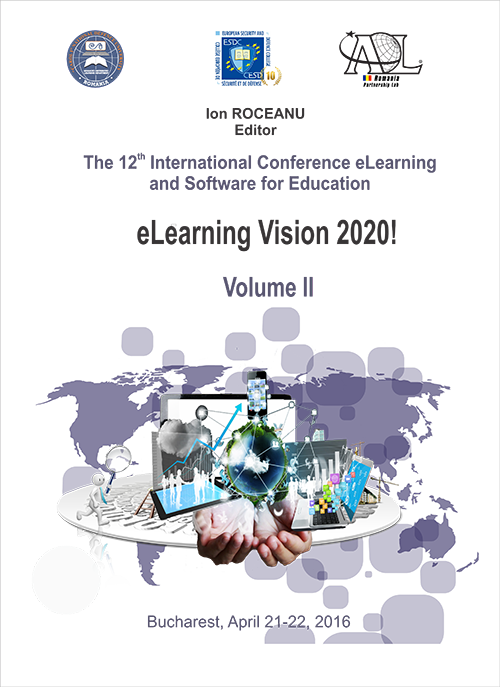M-LEARNING IN THE TEACHING PROCESS
M-LEARNING IN THE TEACHING PROCESS
Author(s): Maria Adelina Ianos, Gabriela Carmen OproiuSubject(s): Education, Media studies, ICT Information and Communications Technologies, Sociology of Education
Published by: Carol I National Defence University Publishing House
Keywords: software applications; m-learning; e-learning; didactic activity;
Summary/Abstract: The development of technique and technology, the increasing role of multimedia in the learning process lead to consistent changes in the educational process. As a result, the didactic activity in education institutions is becoming more diverse, acquiring new dimensions, and teaching is becoming a process where, alongside traditional learning strategies, new blended learning - type strategies occurring. Besides face-to-face learning, blending learning also involves online access to virtual learning environments. An increasingly important role in this context is fulfilled by online learning platforms and, implicitly, by the devices that are used for this purpose. Thus, we can notice the tendency of using mobile devices in the educational purpose (m - learning), which makes its users more independent, and encourages them to take responsibility of their own learning process. M-learning enables access to sites and specific software applications by help of mobile devices. The use of the above-mentioned applications provides a variety of improvement opportunities in the learning process; however, various difficulties are encountered when it comes to implementing them effectively in the educational institutions, both from the technological and didactic perspective. On the other hand, the use of software applications in the m-learning individual process does not require thorough technical knowledge; they are accessible and easy to install. The present paper sets out to investigate the potential impact of using software applications - a comparative analysis of the latter from the perspective of their effectiveness in the learning process as well as the modality of their integration within didactic activities.
Journal: Conference proceedings of »eLearning and Software for Education« (eLSE)
- Issue Year: 12/2016
- Issue No: 02
- Page Range: 605-610
- Page Count: 6
- Language: English

